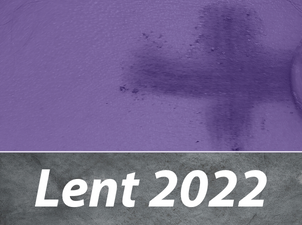
Lent 2022, Week 5: Lent Calls Us to See True Gifts
Inequity hurts our country. More importantly, it hurts the broader Body of Christ when generations of families are ensnared in cycles of financial hardship. A new status quo is needed! As we enter Lent’s final days, let us be mindful of how we can advocate for justice that extends past our earthly lives.
View earlier Lenten Reflections: Ash Wednesday | Week 1 | Week 2 | Week 3 | Week 4
Colin Martinez Longmore
April 1, 2022
This week, we explore family, housing and taxes to explore advantages that contribute to wealth: imputed income, mortgage interest deductions, and home equity gains. The system of penalizing poor families and rewarding wealthy ones supercharges the already growing racial wealth gap. We know that this type of inequity hurts our country, but more importantly, it hurts the broader Body of Christ by ensnaring generations of families in cycles of financial hardship.
Questions for reflection:
- How have you directly benefited from the efforts of a previous generation?
- What do you hope to pass on to future generations?
- How can reflecting on the end of our earthly lives help us become better advocates for justice?
Thank you to NETWORK Grassroots Mobilization team members Sr. Emily TeKolste, SP for co-leading us through these lessons. We’ll watch the end together next week!
Recently, my wife and I were married at our home parish, surrounded by the community that raised us. After the big day, we eagerly shifted our focus to the next chapter—starting our household together. With new jobs, a new city and a new apartment, we kicked off the New Year with a blank canvas, ready to create our version of a Holy Family.
She and I are first generation Americans and college graduates. Thanks to the incredible sacrifices of our parents, and several strokes of good fortune, we found ourselves in the position to do what our families could not: build wealth.
As we combined our budgets and planned for our financial future, we were grateful for the sacrifices our families made to provide us with this opportunity. However, at the same time, we were mindful that our financial plans would have to account for the fact that neither of our parents have retirement savings. In a few years, we will have to support them in old age.
Unfortunately, in our country, this situation is not unique. We can see it illustrated in the mixed-citizenship status family with parents who don’t hold retirement assets, or in the single mother heading into old age with a high personal debt-to-income ratio due to emergency expenses. There are countless families who find themselves in the cycle of an upward generational transfer of wealth, where younger generations are financially supporting their parents, rather than receiving wealth from them.
Our tax code does not reward this spending framework. It also disadvantages these families by not offering help, in the form of interest deductions, on certain debts like medical bills, credit cards, or personal loans. Many families are limited in their ability to save, invest, build wealth, retire comfortably and pass down wealth to future generations.
In contrast, wealthy—and overwhelmingly white—families enjoy a very different set of rules in our tax code when it comes to passing down wealth. The “stepped-up” basis loophole for inherited assets protects these families. They can dodge taxes on their wealth when transferring it from one owner to the next. The value on investment assets gained during the original owner’s possession is not taxed upon being inherited by the new owner. In other words, the assets are “stepped-up” in value and the new owner is able to realize tax-free gains. On top of that, estate and other inheritance loopholes allow wealthy families to avoid taxes on up to $23 million when passing down wealth.
The system of penalizing poor families and rewarding wealthy ones supercharges the already growing racial wealth gap. We know that this type of inequity hurts our country, but more importantly, it hurts the broader Body of Christ by ensnaring generations of families in cycles of financial hardship. A new status quo is needed! As we enter into the final week of Lent, let us be mindful of how we can continue to advocate for a justice that extends past our earthly lives.










